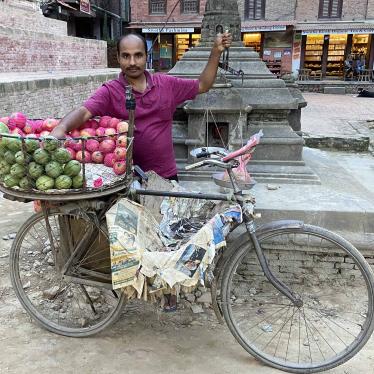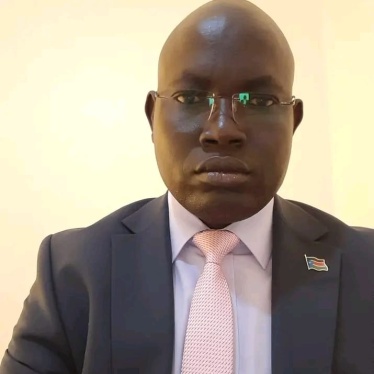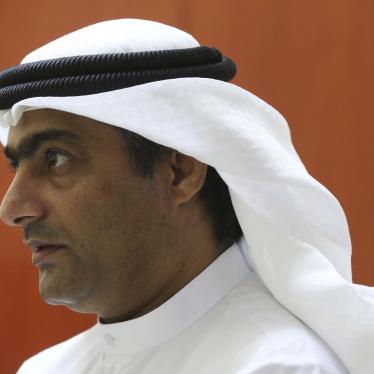Dear Executive Directors,
We, the undersigned human rights, faith-based, and economic justice organizations, are writing to express concerns that the World Bank and IMF are failing to promote the human right to social security for all.[1] We are proposing four policy changes that would advance the right to social security in line with human rights standards, and we would like to meet with you to explore how your office may support them.
As underlined by the Global Partnership for Universal Social Protection to Achieve the Sustainable Development Goals (USP2030),[2] which the World Bank is co-chairing, “universal social protection is a human right and key to recovery, for a green transition and sustainable and inclusive economic and social development for individuals, communities, and nations”. At present, however, over half of the world’s population has no access to even one social security program.[3]
Among international development actors, the World Bank is the largest funder of social protection systems.[4] Despite the World Bank’s commendable commitment in 2015 to promote universal social protection, we are concerned that the World Bank continues to promote narrowly targeted “safety nets,” where eligibility hinges on estimates of the extent of poverty that have acknowledged large exclusion errors, rather than embracing a more inclusive and rights-aligned universal approach.[5]
Research by Oxfam International and others found that 85 percent of the world’s population lives in countries where governments’ austerity measures impede their ability to deliver on their human rights obligations.[6] While as part of its country assistance programs, the IMF has increasingly included some level of protection for social spending, the Fund continues to promote heavily means-tested programs that cover only a tiny fraction of the population. This undermines global efforts to work towards universal social protection systems consistent with human rights.[7]
The negative impacts of this approach are well-documented, especially in countries without universal social security systems and where the majority of people work and live in informal settings. Evidence shows that such programs are often designed too narrowly and exclude many of the poorest.[8] “The poor” is not a static group, and in reality, households dynamically move between societal welfare rankings over short periods.[9] Further, most governments lack up-to-date data to accurately identify “the poor.” “Targeting” is also vulnerable to mismanagement or corruption.[10] By focusing only on people in poverty or even extreme poverty, these programs exclude large segments of the population who may not be considered “poor” at one moment but are far from enjoying their rights. They also fail to build a shared sense of solidarity and can undermine trust within societies.[11]
Further, through macroeconomic policy advice, the World Bank and IMF have a history of undermining public social insurance systems by promoting individualized savings schemes such as privately managed pensions, over investment in public systems.[12]Recent reforms in some countries have further eroded the right to social security, leading to reduced coverage and lower benefits.[13] In some countries, these changes involved cuts to employer contributions or reduced benefits for the majority in the public system. Research by the International Labour Organization (ILO) shows that privatization of social insurance in some countries worsened poverty and inequality, disproportionately affecting women and older people.[14]
The current approach taken by the World Bank and IMF falls short of their obligations under international law. International financial institutions have an obligation to avoid causing harm by not demanding cuts or a re-design of social security programs that would undermine rights, and to provide as many resources as they can to help build universal social security systems that are rights-aligned.[15]
The Bank and IMF have an opportunity to course-correct and adopt a rights-aligned approach to social security that sets the tone and leads the way toward more just societies and economies. We strongly urge the World Bank and IMF, as pivotal actors in financing and shaping social security policies in low- and middle-income countries, to take four measures to progressively realize the right to social security:
- Support states to realize the right to social security. Immediately commit to support states to progressively realize the right to social security. This involves setting up or strengthening rights-aligned social security systems, including the establishment of social protection floors in line with ILO Recommendation 202.[16]
- Replace the focus on poverty-targeting with universal systems. Stop funding new poverty-targeted programs and phase out existing ones, along with related technologies and privacy-invasive infrastructure such as social registries. Additionally, strengthen a fair distribution of resources by coupling universal social security with fiscal reforms that reduce inequality.[17]
- Support equitable and sustainable public systems. Support equitable and sustainable social security systems in accordance with international standards, including by promoting adequate employers' contributions and adequate social security benefits to ensure income security. Avoid pension privatization and instead strengthen public social security systems.
- Cease harmful austerity budgeting reforms. Halt austerity policies that threaten rights and privatize social security and refrain from promoting social spending trade-offs. Cease conditioning loans on austerity measures and promoting austerity as a policy priority for governments. Ensure that any increase in social spending in one sector, for instance on social security, does not come at the expense of other rights.
We would greatly appreciate the opportunity to meet with you and discuss these proposed policy reforms. Given that several of our organizations will be in Washington DC for the 2024 Spring meetings, we kindly request a meeting either in person during the Spring meetings or online the week following the meetings.
For additional details on our unified call to action and priorities for realizing the right to social security, please refer to the full statement on the Global Coalition for Social Protection Floors website via the following link:https://www.socialprotectionfloorscoalition.org/social-security-for-all/.
Sincerely,
- AbibiNsroma Foundation
- Act Church of Sweden
- Action contre la Faim
- ActionAid International
- Actions des femmes marginalisées pour le développement "AFMD ASBL"
- Actions des Femmes pour les Initiatives de Developpement (AFID)
- Africa Japan Forum
- Age International
- Aid Organization
- Ajemalebu Self Help (AJESH)
- Alliance contre la Pauvreté au Mali AP/MALI
- Amnesty International
- Arab Reform Initiative (ARI)
- Arab Renaissance for Democracy and Development
- Arab Watch Coalition (AWC)
- Asociación Generaciones de Paz
- Association For Promotion Sustainable Development
- Association Nigérienne pour la Défense des Droits de l'Homme (ANDDH)
- Association Tunisienne des Femmes Démocrates
- Bretton Woods Project
- Candid Concepts Development
- Center for Economic and Social Rights
- Central Autonoma de Trabajadores del Peru - CATP PERU
- CHIRAPAQ/ECMIA
- CNCD-11.11.11
- Conseil de Facilitation et Gestion Locale (CFGL)
- Consejo de Jóvenes de Oaxaca - México
- Council for NGOs in Malawi - CONGOMA
- DAAD Alumni Guinea Bissau (German Academic Exchange Services)
- Daayyaa Generation Network (DGN)
- Defensores do planeta
- Derecho Ambiente y Recursos Naturales
- Development Alternatives with Women for a New Era (DAWN)
- DoTheDream Youth Development Initiative
- Earth Forever Foundation
- Egyptian Human Rights Forum (EHRF)
- EuroMed Rights
- Food Sovereignty and Climate Justice Forum/Tax and Fiscal Justice Alliance
- Forum for Wildlife and Environment Preserve (FOWEP)
- Free Trade Union Development Center
- Friends of the Disabled Association
- Gender Action
- Gestos (soropositividade, comunicação e gênero)
- Global Call to Action Against Poverty (GCAP)
- Global Forum of Communities Discriminated on Work and Descent (GFOD)
- Global Initiative for Economic, Social and Cultural Rights
- Global Redistribution Advocates
- Global Social Justice
- Global Social Justice Brussels
- Green Economy Coalition
- Halley Movement Coalition
- HelpAge International
- Human Rights Watch
- Idara-e-Taleem-o-Aagahi (ITA)
- Initiative for Social and Economic Rights (ISER)
- Institute for Economic Justice
- International Budget Partnership
- International Society for Poverty Elimination / Economic Alliance Group
- International Trade Union Confederation ITUC
- International Transport Workers' Federation
- Kvinna till Kvinna Foundation
- Lebanese Center for Human Rights
- Lutte Nationale Contre la Pauvreté "LUNACOP ASBL"
- MenaFemMovement for Economic, Development and Ecological Justice
- MY World Mexico: Hub of Action for Sustainable Development
- Nash Vek Public Foundation
- National Campaign for Sustainable Development Nepal
- North Western Youth Led Zambia
- Oxfam International
- Pakistan workers federation
- Passion To Share Foundation
- Phenix Center
- Philippine Rural Reconstruction Movement
- Povod Institute, Slovenia
- PRO Global/Pensioners without Borders
- Reachout Salone
- Red Nicaragüense de Comercio Comunitario
- Religious of the Sacred Heart of Mary NGO
- Rivers without Boundaries Mongolia
- Rural Area Development Programme (RADP)
- SAHRiNGON Tanzania Chapter
- Sir J interbiz Ventures
- Social Justice in Global Development
- Social Policy Initiative
- Social Policy Insights
- Success Capital Organisation
- Tax Justice Network Africa
- Trickle Up
- UNASCAD (Union des Amis Socio Culturels d'Action en Developpement)
- Wada Na Todo Abhiyan
- WEED - World Economy, Ecology & Development
- Wemos
- Witness Radio- Uganda
- Women in Informal Employment: Globalizing and Organizing (WIEGO)
- WSM - We Social Movements
- Youth For Change Bangladesh Foundation
[1] In October 2023, 71 organizations signed a joint statement that provides additional details on our unified call to action and priorities for realising the right to social security, see here: https://www.socialprotectionfloorscoalition.org/social-security-for-all/.
[2] See: https://usp2030.org.
[3] See: https://www.social-protection.org/gimi/WSPDB.action?id=32.
[4] In 2022, the World Bank reported a portfolio of almost US$29.5 billion in social protection financing, covering an estimated 880 million people in 71 countries. See: https://openknowledge.worldbank.org/entities/publication/84ba2380-624c-553a-b929-2882e72c7468
[5] We understand poverty versus universal programs as follows: i) Poverty-Targeted Programs are means-tested and attempt to target people based on their income or assets. ii) Universal Programs do not limit eligibility based on peoples’ resources, but rather emphasize universal eligibility for everyone within specific groups that encompass stages of life or statuses in which people’s economic, social and cultural rights are particularly at risk (e.g., children, people with disabilities, unemployed adults, caretakers, older people, etc.).
[6] “85% of the world’s population will live in the grip of stringent austerity measures by next year.” Oxfam. 2022. https://www.oxfam.org/en/press-releases/85-worlds-population-will-live-grip-stringent-austerity-measures-next-year.
[7] “Bandage on a Bullet Wound: IMF Social Spending Floors and the Covid-19 Pandemic.” Human Rights Watch. 2023. https://www.hrw.org/report/2023/09/25/bandage-bullet-wound/imf-social-spending-floors-and-covid-19-pandemic.
[8] “Hit and Miss: An assessment of targeting effectiveness in social protection with additional analysis.” Stephen Kidd and Diloá Athias. Act Church of Sweden and Development Pathways. 2020. See: https://www.svenskakyrkan.se/default.aspx?id=1909511.
[9] “Advocating for universal social security: how to win hearts and minds.” Stephen Kidd, Gunnel Axelsson Nycander, and Holly Seglah. 2023. https://www.developmentpathways.co.uk/wp-content/uploads/2023/02/Advocating-for-universality_v1c.pdf.
[10] “The social contract and the role of universal social security in building trust in government.” Stephen Kidd, Gunnel Axelsson Nycander, Anh Tran and Madeleine Cretney. Act Church of Sweden and Development Pathways. 2020. https://www.svenskakyrkan.se/default.aspx?id=2151346.
[11] “Towards universal social protection.” Development Pathways and the Economic and Social Commission for Asia and the Pacific. 2022. https://www.developmentpathways.co.uk/publications/towards-universal-social-protection/.
[12] “Reversing Pension Privatizations: Rebuilding public pension systems in Eastern Europe and Latin America.” International Labour Organization. 2018. https://www.ilo.org/wcmsp5/groups/public/---ed_protect/---soc_sec/documents/publication/wcms_648574.pdf.
[13] “End Austerity: A Global Report on Budget Cuts and Harmful Social Reforms in 2022-25.” Isabel Ortiz and Matthew Cummins. 2022. https://publicservices.international/resources/publications/end-austerity-a-global-report-on-budget-cuts-and-harmful-social-reforms-in-2022-25?id=13501&lang=en.
[14] “Reversing Pension Privatizations: Rebuilding public pension systems in Eastern Europe and Latin America.” International Labour Organization. 2018.
[15] “Questions and Answers on the Right to Social Security.” Human Rights Watch. 2023. https://www.hrw.org/news/2023/05/25/questions-and-answers-right-social-security.
[16] Stephen Kidd, Nahya Mansoor, Angela Barca. 2023. “An affordable and feasible pathway to universal social security using the principle of universality.” Act Church of Sweden, Action Against Hunger France, Development Pathways. 2023. https://www.developmentpathways.co.uk/wp-content/uploads/2023/06/Affordable-and-feasible-pathway-to-universal-social-security.pdf.
[17] “Social registries: a short history of abject failure.” Stephen Kidd, Diloá Athias & Idil Mohamud. 2021. https://www.svenskakyrkan.se/filer/578537/Social-registries-a-short-history-of-abject-failure-June-1%20(1).pdf?id=2244266.







